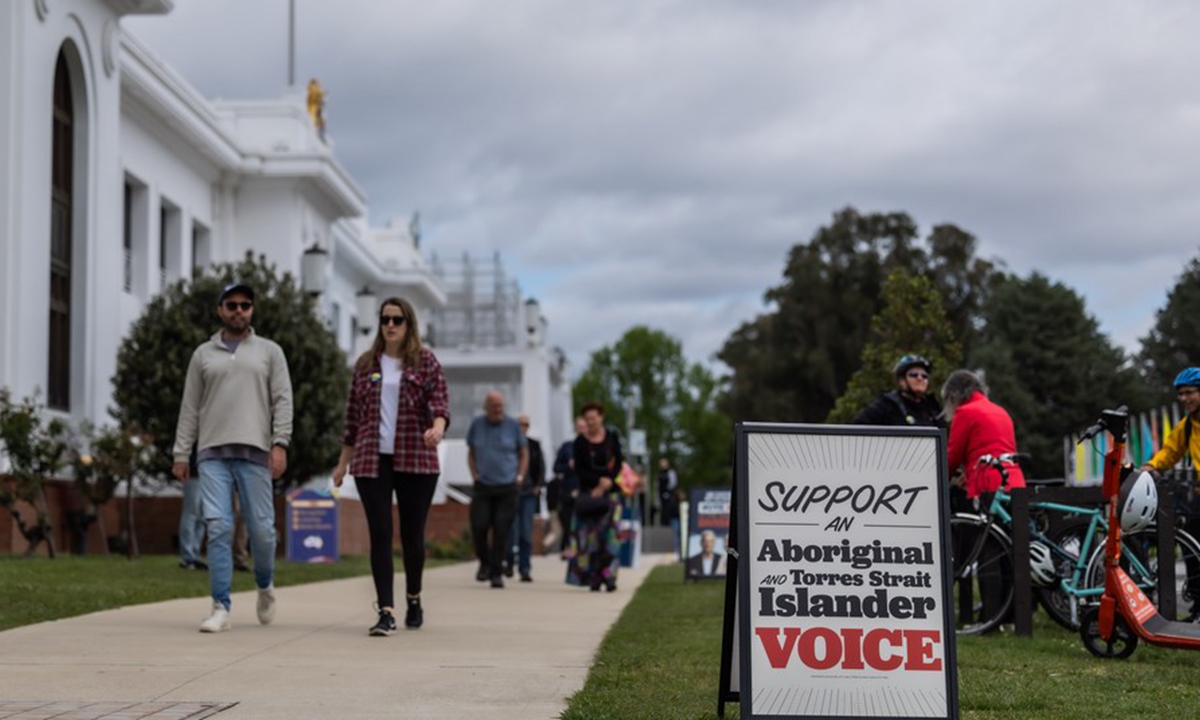Australian PM concedes defeat in Indigenous Voice referendum, vows continued efforts to address Indigenous disadvantages

Voters walk out of a voting center in the Old Parliament House in Canberra, Australia, Oct. 14, 2023.(Photo by Chu Chen/Xinhua)
Australia's Prime Minister Anthony Albanese has conceded defeat in the country's landmark referendum on an Indigenous Voice to Parliament, and vowed continued efforts to address disadvantages faced by First Australians.
Speaking in Canberra on Saturday night hours after polls closed, Albanese said it was clear a majority of Australians had voted against changing the constitution to establish an Indigenous advisory body to the federal parliament.
"My fellow Australians, at the outset, I want to say that while tonight's result is not one that I had hoped for, I absolutely respect the decision of the Australian people and the democratic process that has delivered it," he said.
"I never imagined or indeed said that it would be easy. History told us that only eight out of 44 had done so," he said, adding that "and of course, when you do the hard things, when you aim high, sometimes you fall short. And tonight we acknowledge, understand and respect that we have."
In order to be successful, the "yes" vote needed to achieve a double majority, meaning more than 50 percent of Australia's 17.6 million enrolled voters as well as a majority in at least four of the country's six states needed to vote in favor of changing the constitution.
With 60 percent of votes counted by the Australian Electoral Commission (AEC) as of 10 p.m. Australian Eastern Daylight Time (AEDT) (1100 GMT) on Saturday, 59 percent of Australians had voted "no", including a majority in all six states.
Albanese, an advocate of the Voice since it was first proposed in 2017, said it was time for Australians to come together to address disadvantages faced by Aboriginal and Torres Strait Islander people, including lower life expectancy and higher rates of incarceration, disease and suicide than the non-Indigenous population.
"A great nation like ours can and must do better for the First Australians," Albanese said.
"We intend as a government to continue to do what we can to close the gap, to do what we can to advance reconciliation, to do what we can to listen to the First Australians."
Peter Dutton, the leader of the opposition Coalition parties and a leading campaigner for the "no" vote - said the result was "good for our country."
"The Coalition, local Australians, wants to see Indigenous disadvantage addressed. We just disagree on the Voice being the solution," he said in a speech to a campaign event, "and while Yes and No voters may hold differences of opinion, these opinions of difference do not diminish a love for our country or our regard for each other."
